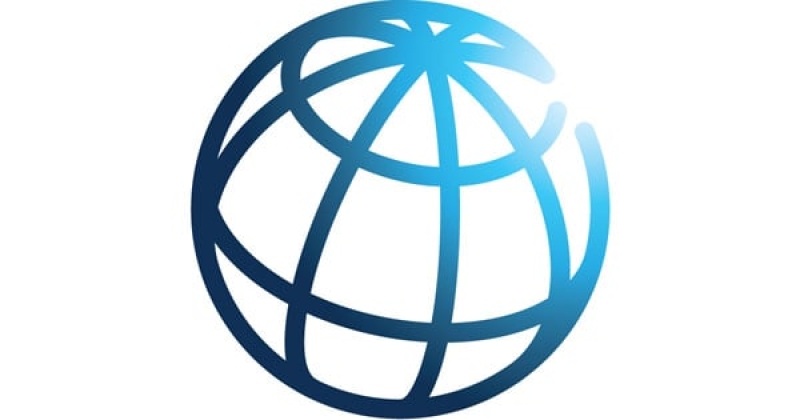- Muslim League leads new electoral alliance, Jatiya Muslim Jote |
- Tk 500cr Drive to Turn Haor Fallow Land Into Farmland |
- Tarique Rahman returns home amid rapturous reception |
- Home After 17 Years: Tarique Returns to Gulshan Residence |
- Tarique Calls for United Effort to Build a Safe Bangladesh |
World Bank approves $700m for 2 projects in Bangladesh

The World Bank's Board of Executive Directors has approved two projects totaling $700 million to provide basic services and build disaster and social resilience for both the host communities and displaced Rohingya population in Bangladesh.
Nearly one million Rohingya have fled violence in Myanmar to Bangladesh since 2017, making it one of the largest forced displacement crises in the world. "We greatly appreciate the Government of Bangladesh's generosity in supporting nearly one million Rohingya people. We also recognize the enormous pressure placed on the host communities," said Abdoulaye Seck, World Bank Country Director for Bangladesh and Bhutan.
He said, "With the crisis entering its seventh year, long-term planning and sustainable solutions have become critical, while also addressing short-term, urgent needs. We are fully committed to supporting the Government of Bangladesh to address this complex crisis and support the wellbeing of both the Rohingya and host communities."
The $350 million Inclusive Services and Opportunities for Host Community and Displaced Rohingya Population Project and the $350 million Host and Rohingya Enhancement of Lives Project will together provide support to the Bangladeshi host communities and the Rohingya people as this crisis enters its seventh year, reports BSS.
The interventions supporting the Rohingya population will be financed by the World Bank as grants under the IDA20 Window for Host Communities and Refugees.
The Inclusive Services and Opportunities for Host Communities and DisplacedRohingya Population (ISO) Project will build on active investments inlivelihoods and essential health, nutrition, family planning, gender-basedviolence response and prevention services for at least 980,000 people in theRohingya and host communities.
The project will prioritize investment in human capital development, with theaim to support the education of 300,000 Rohingya children under the age of12.
"The protracted displacement crisis that the Government of Bangladesh isaddressing is ultimately a challenge about supporting people, whether theyare in the host community or in the displaced Rohingya population," said S.Amer Ahmed, World Bank Task Team Leader for the ISO Project.
"The ISO Project will be supporting vulnerable households in bothcommunities to invest, protect, and use their human capital through supportfor temporary work, training, education, child protection, primaryhealthcare, nutrition, family planning, and gender-based violence responseand prevention services."added Amer.
The Host and Rohingya Enhancement of Lives Project (HELP) will improve accessto basic services and enhance the resilience of at least 645,000 people inthe Rohingya and host communities.
Project activities will encompass urgently needed investments in water,sanitation, and hygiene; climate resilient roads; renewable energy; andmulti-purpose disaster shelters - underlying foundations critical tosupporting productive livelihoods.
The project will also focus on providing skills building for operations andmaintenance at both the government and community levels, aiming for a dualbenefit of infrastructure sustainability and longer-term skills development.
"Disaster and climate resilience are ever more critical as the crisis becameprotracted. The Rohingya people continue to live in extremely congestedsettlements and have minimal access to basic services. The host communitiesare also deeply impacted, with continued additional pressure on limitedresources," said Swarna Kazi, World Bank Task Team Leader for HELP.
"The Host and Rohingya Enhancement of Lives Project will provide keyinvestments to strengthen the resilience of critical infrastructure andfurther work to ensure they are sustained and maintained in the medium tolong-term." added Kazi.
Around 70 percent of the displaced Rohingya people in Bangladesh are womenand children, and half are less than 15 years of age. The two projectsrecognize the differentiated impact of the crisis on women, children, andother vulnerable groups.
Focused activities to address this include investments in gender-basedviolence prevention; safely managed, gender-sensitive, and climate resilientsanitation and hygiene facilities; solar streetlights for safety; and focusedtrainings for women on community-based disaster risk management.
The two projects follow the World Bank's support of $590 million grant sincethe onset of the crisis and are underpinned by the lessons learned throughthese earlier interventions, as well as learning from forced displacementcrises around the world.
The World Bank has helped the Rohingya people and host communities ondisaster preparedness, basic infrastructure, social protection, collaborativeforest management, and income generation opportunities for the hostcommunities.
The World Bank was among the first development partners to support Bangladeshfollowing its independence.
Since then, the World Bank has committed more than $40 billion in grants andinterest-free credits to Bangladesh. In recent years, Bangladesh has beenamong the largest recipients of the World Bank's interest-free credits.

